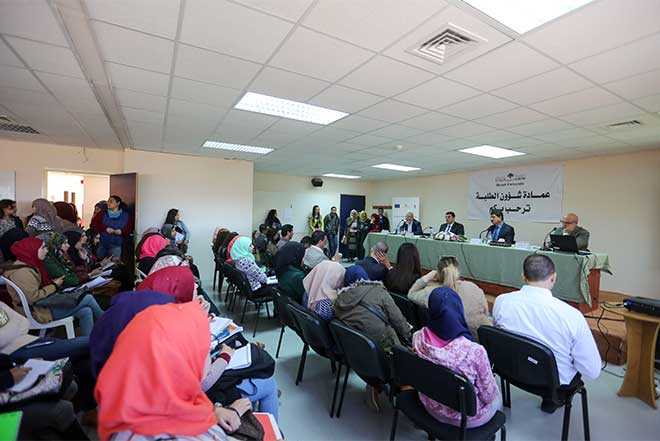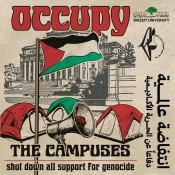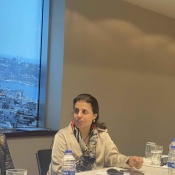Palestinian Elections Promoted by Speakers
Observations on the Palestinian electoral system were the subject of a symposium held March 31, 2016, by the Deanship of Students Affairs and the Center for Defense of Liberties and Civil Rights, also known as “Hurriyyat.”
Keynote speakers elections activist Taleb Awad, Hurriyyat director Hilmi Al-Araj, and Department of Political Science faculty member Ali Jirbawi agreed that elections are the most genuine guarantees for democratization and achieving unity between Palestinian political parties.
“The participation of young people in our political process cannot be undermined,” Awad said. “For our democracy to be meaningful, stable and functional, our youth must be part of the shaping process. Youth have a right and responsibility to help form the future that they will experience. Young voices and voters are equally essential in the body polity and the electoral process.”
Araj focused on the factional divide, saying that “the factions and the contentious political environment are the main obstacles to achieving fair and transparent elections. These disputes harm the democratic reforms in the West Bank and Gaza by reserving power for [those in power].” He called on all interested parties of intervene and identify the urgent need to revive the electoral process.
“Exercising our right of self-determination by participating in elections is a must. Palestinians should not be burdened when performing their most basic democratic right – elections,” professor Jirbawi indicated.
Palestinian elections were first held in 1996. Next, presidential elections were held in 2005 and Legislative Council elections in 2006, after the successive passing away of President Yasser Arafat and end of the intifada. Scheduling the next elections for the president of the Palestinian Authority is being debated between Fatah and Hamas after the political landscape was divided between them in 2006.







